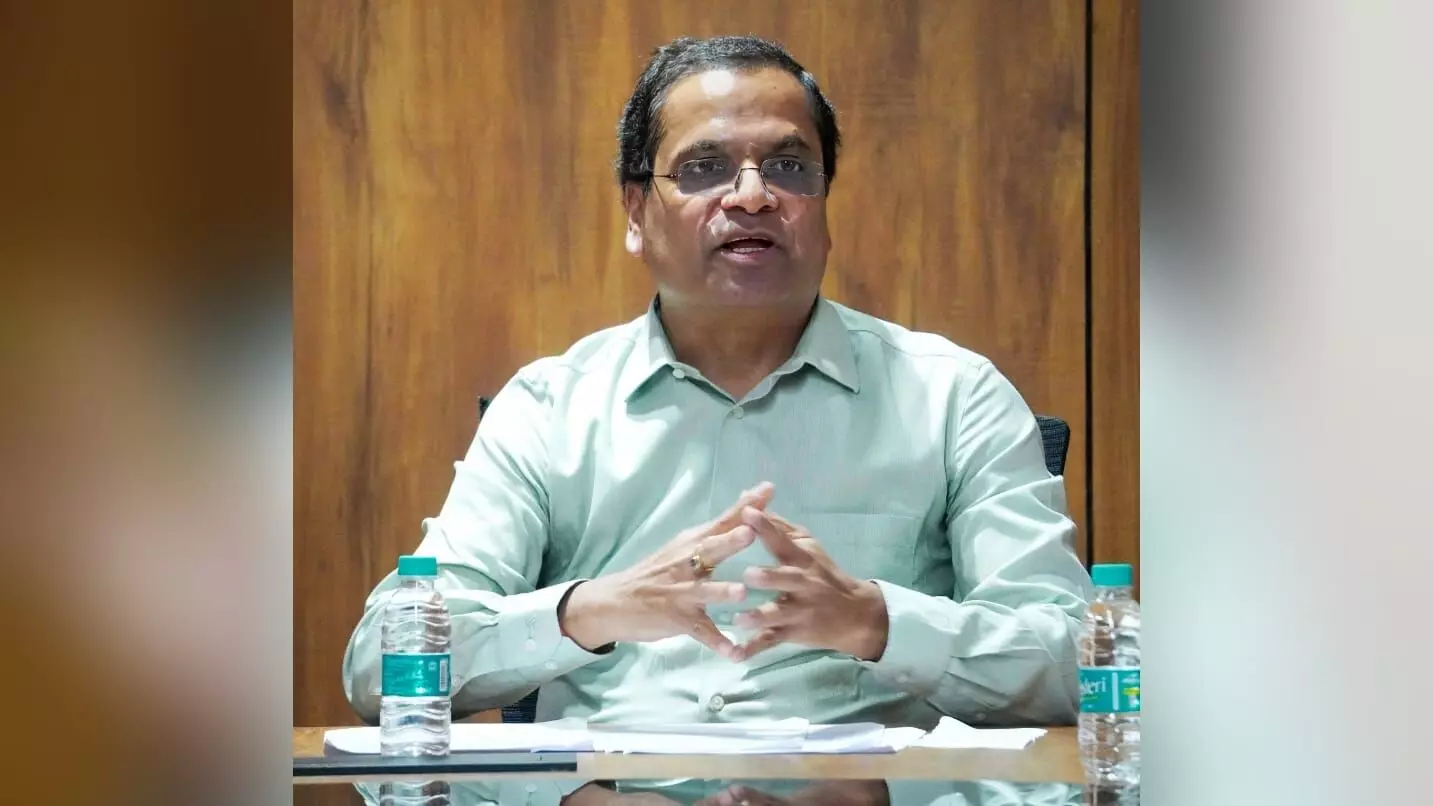Double taxation to high power tariff: FTCCI sends SOS to Telangana govt; seeks help
One of the main concerns raised by FTCCI is the recent change in the trade license fee system. It is seen as a form of "double taxation"
By Newsmeter Network
Anil Agarwal, President of FTCCI addressing the media at RedHills, Hyderabad
Hyderabad: Federation of Telangana Chamber of Commerce and Industry (FTCCI) has sent SOS to the government to address the issues faced by micro, small, and medium enterprises MSME in the state. FTCCI listed trade license fees, industrial property tax, cost of energy, and disbursement of incentives as some of the problems which are hampering the growth of MSMEs in Telangana.
Trade licence fee: A case of double taxation
One of the main concerns raised by FTCCI is the recent change in the trade license fee system. It is seen as a form of "double taxation". "Since September 2020, the fee has been collected on a per-square-foot basis, with rates ranging from Rs 4 to Rs 7 depending on the size of the unit and the type of business. The highest fee previously was Rs 7,000, but now some MSMEs are facing bills of lakhs of rupees," said Anil Agarwal, president of FTCCI. FTCCI urged the government to scrap the new system and revert to the old method, stating that other states do not charge or charge nominally for trade licenses on industrial establishments.
Industrial property tax/cost of energy
FTCCI also highlighted the issues of high property tax on industrial units, high power costs, and delays in getting no objection certificates (NOC) to buy power from open access. The federation claimed that industrial incentives to the tune of Rs 3,000 crore have not been disbursed since 2015.
According to Anil Agarwal, the power tariff levied on industries in Telangana is one of the highest in the country. "Industrial units used to procure power from Power Exchanges through open access to buy cheap power from the open market. However, NOCs have not been issued to new units since 2015, and additional surcharges of Rs 1.38 per unit have been imposed on existing units," he said.
"This surcharge was introduced to recover stranded power costs of DISCOMs but has discouraged industrial units from procuring power from open access. Recently, wheeling charges are being levied. Telangana Open Access consumers must bear the charges upfront, unlike other states, which charge on a unit basis. As a result, industrial units are unable to access affordable power, increasing operational costs and burdening the units financially."
The proposed additional surcharges for the first half and second half of the financial year 2022-23 were Rs 4.06/kWh and Rs 6.81/kWh, respectively, while the approved surcharges were Rs 1.15/kWh and Rs 1.38/kWh, respectively. Meanwhile, the proposed additional surcharge for the first half of 2023-24 is Rs 9.86/kWh.
Net metering for solar power
FTCCI has requested the Telangana government to allow net metering for solar power up to 5 MW in the same premises to promote renewable energy and reduce the cost of doing business. Anil Agarwal mentioned that the land costs MSMEs need to invest in are skyrocketing. They are not affordable even in clusters created by the government. The cost of land has gone up so high, it has become a very challenging task for MSMEs.